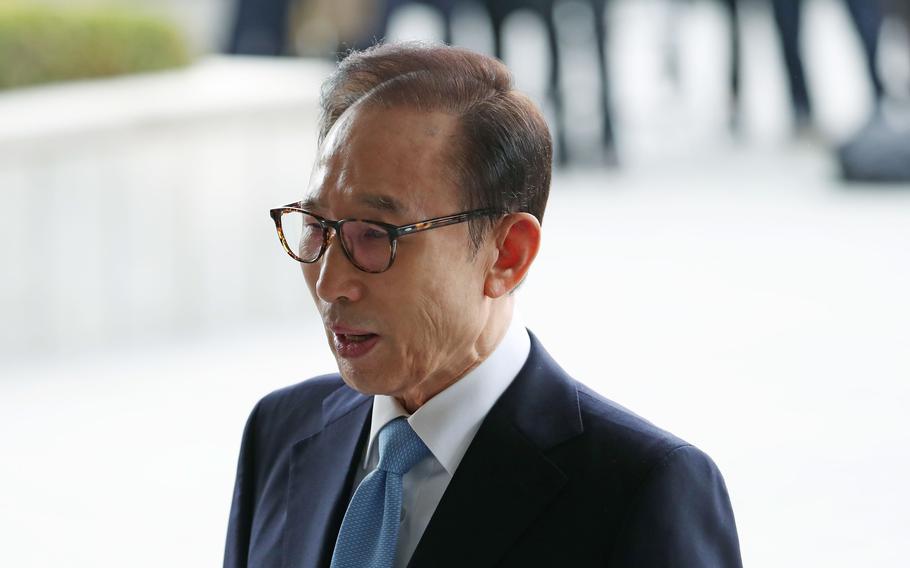
Lee Myung-bak in 2018. (SeongJoon Cho/Bloomberg )
South Korea’s current leader issued a special pardon for former conservative president Lee Myung-bak, who had been serving a 17-year sentence for corruption that could have kept him behind bars into his 90s.
Yoon Suk Yeol issued the pardon for Lee, 81, on Tuesday that will be effective the following day, the Justice Ministry said in a statement. Lee becomes the fourth former president to be issued a pardon since the country’s advent to full democracy in 1987.
Lee’s term from 2008 to 2013 was marked by mass protests and renewed tensions with North Korea. The corruption charges against Lee stemmed from a probe of his brother’s auto parts company, which prosecutors alleged Lee used as a way to enrich himself while in office.
Lee rose from poverty to become a high-flying executive at Hyundai Engineering & Construction, gaining popularity as a self-made man amid the country’s surging economic growth after the Korean War.
He entered politics in his 50s, becoming a member of parliament and mayor of Seoul. He focused on improving the quality of life in the capital that included speeding up commutes and restoring a river in the center of the capital by tearing down a highway he helped build while at Hyundai that had been constructed above the waterway.
Lee, who refused to attend his trial, accused prosecutors of carrying out political revenge on behalf of President Moon Jae-in’s liberal government.
Yoon also granted a special pardon to former governor of Gyeongsang province Kim Kyoung-soo, a close aide to Moon.
Before leaving office earlier this year, Moon issued a pardon for former conservative President Park Geun-hye, releasing her from prison after she spent nearly five years behind bars of a 22-year sentence for corruption. She served after Lee and before Moon and was convicted of criminal charges including bribery, extortion and abuse of power.
South Korean presidents have a history of leaving office under a cloud, with former leaders together with family members facing investigations for suspected graft after their terms ended. With Lee’s pending release, all the former convicted leaders will have been granted pardons after serving time in prison.
The most prominent pardons came in 1997 when outgoing leader Kim Young-sam and then president-elect Kim Dae-jung agreed to grant amnesty to two military coup leaders — Chun Doo-hwan and Roh Tae-woo — in the spirit of national reconciliation. Democracy activist Kim Dae-jung, who spent six years in prisons as a dissident, was arrested by Chun’s government, where a military court initially sentenced him to death.
Bloomberg’s Seyoon Kim contributed to this report.